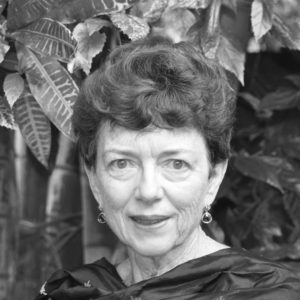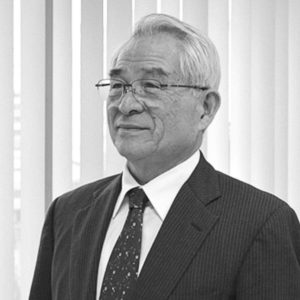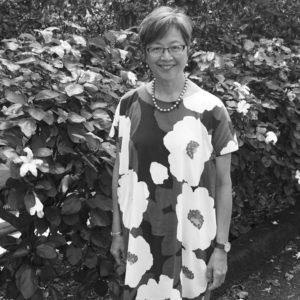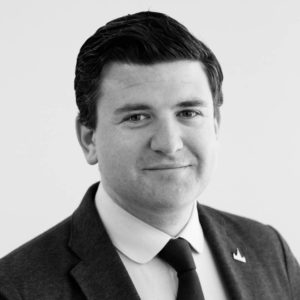Programme (Live-Stream and On-Demand)
To be held in online from Kobe, Japan, from August 31 – September 04, AAS-in-Asia 2020 is organised and co-hosted by the Association for Asian Studies (AAS) and The International Academic Forum (IAFOR).
To be held in online from Kobe, Japan, from August 31 – September 04, AAS-in-Asia 2020 is organised and co-hosted by the Association for Asian Studies (AAS) and The International Academic Forum (IAFOR).
Late-breaking Panel:
The COVID-19 Pandemic in East and Southeast Asia: Comparative Perspectives
Special Panel:
Japan and Korea in China-US Relations: A Reappraisal of the Post-War Order
Supported by the Korea Foundation
Special Panel Session:
Reports from CULCON: Cultural and Educational Interchanges between Japan and the U.S.
Supported by CULCON
Special Panel:
Asia Matters Podcast: South Asia’s Dual Crisis: Covid-19 and Climate Change
Late-breaking Panel Session:
Reimagining Transnational Student Mobility in the Post-COVID-19 Era
Supported by IAFOR Research Centre and Graduate School of Letters, Osaka University
Special Panel:
Godzilla and Global Anxiety from Hiroshima to COVID-19
Special Panel Session:
The Other AI: Automation, Innovation and the Future of Work in Asia
Supported by Konrad Adenauer Stiftung (KAS)
Late-breaking News Roundtable:
New Threats to Academic Freedom
Since going fully online, we have been at work to bring you extra events, such as virtual tours of museums and cultural events and workshops to enhance your online participation in AAS-in-Asia 2020. We have also organised important late-breaking news roundtables in the plenaries that address the various impacts of the COVID-19 pandemic and current challenges to academic freedom. We will update the website as additional programs are confirmed, so stay tuned.
 Barbara Watson Andaya is Professor in the Asian Studies Program at the University of Hawai’i and former Director of the Center for Southeast Asian Studies. In 2005-2006 she was President of the American Association of Asian Studies. Educated at the University of Sydney (BA, DipEd), she received an East-West Center grant in 1966 and obtained her MA in history at the University of Hawai’i. She subsequently went on to study for her PhD at Cornell University with a specialisation in Southeast Asian history.
Barbara Watson Andaya is Professor in the Asian Studies Program at the University of Hawai’i and former Director of the Center for Southeast Asian Studies. In 2005-2006 she was President of the American Association of Asian Studies. Educated at the University of Sydney (BA, DipEd), she received an East-West Center grant in 1966 and obtained her MA in history at the University of Hawai’i. She subsequently went on to study for her PhD at Cornell University with a specialisation in Southeast Asian history.
Her career has involved teaching and researching in Malaysia, Australia, New Zealand, Indonesia, the Netherlands, and since 1994, Hawai’i. She maintains an active teaching and research interest across all Southeast Asia, but her specific area of expertise is the western Malay-Indonesia archipelago. In 2000 she received a John Simon Guggenheim Award, which resulted in The Flaming Womb: Repositioning Women in Southeast Asian History, 1500-1800. She is General Editor of the new Cambridge History of Southeast Asia and is completing a book on gender in sexuality in Southeast Asia from early times to the present.
 Masashi Nishihara has been President of the Research Institute for Peace and Security since 2006. Until then he served as President of the National Defense Academy, Yokosuka, for six years. From 1977-99 he was Professor of International Relations at the Academy. He was also Director of the First Department of the National Institute for Defense Studies. Dr Nishihara was a Visiting Fellow at the Australian National University in Canberra in 1979 and at the Rockefeller Foundation in New York in 1981-82. Nishihara received his PhD in political science from the University of Michigan after having conducted field research in Jakarta. In 1986-95 he served on the Council of the International Institute for Strategic Studies (IISS). He also served on the task forces and panels under Prime Ministers Kiichi Miyazawa, Jun’ichiro Koizumi and Shinzo Abe.
Masashi Nishihara has been President of the Research Institute for Peace and Security since 2006. Until then he served as President of the National Defense Academy, Yokosuka, for six years. From 1977-99 he was Professor of International Relations at the Academy. He was also Director of the First Department of the National Institute for Defense Studies. Dr Nishihara was a Visiting Fellow at the Australian National University in Canberra in 1979 and at the Rockefeller Foundation in New York in 1981-82. Nishihara received his PhD in political science from the University of Michigan after having conducted field research in Jakarta. In 1986-95 he served on the Council of the International Institute for Strategic Studies (IISS). He also served on the task forces and panels under Prime Ministers Kiichi Miyazawa, Jun’ichiro Koizumi and Shinzo Abe.
Nishihara specializes in international security and Asian politics with his works including: The Japanese and Sukarno’s Indonesia (University Press of Hawaii, 1976), The Political Corruption of Southeast Asia (in Japanese, ed. Sobunsha, 1976), Vietnam Joins the World; American and Japanese Perspectives (co-editor, New York, M.E. Sharp, 1997), and “Regional Security Perspectives” in Asian Security (an annual report of Research Institute for Peace and Security).
A Virtual Museum Visit of the Hyogo Prefectural Museum of Art
Joseph Haldane in Conversation with Yutaka Mino
Zen Buddhism and Well-being
Reverend Takafumi Kawakami | Shunkoin Temple, Kyoto, Japan
Taste Washoku to Unveil Japanese Society: Encountering with Wagyu and Matcha
Kae Sekine | Aichi Gakuin University, Japan
Kobe: Japan’s Culinary Melting Pot
Aiko Tanaka | Osaka Shoin Women’s High School and University, Japan
Haiku Workshop
Emiko Miyashita & Hana Fujimoto | Haiku International Association
Asia at the Crossroads: Conversations on Food, Politics, and Culture
Haruko Satoh in Conversation with Daisuke Utagawa
Wadaiko Performance
AIE International High School
 I would like to personally welcome you to this online conference. As a participant, you are helping the Association for Asian Studies break new ground in our pandemic era and beyond. This is our first all-virtual conference, and I want to thank our partner, IAFOR, for paving the way in making this happen. The pandemic has forced us into a world only made possible through technology, but that is not necessarily a bad thing. I would rather see this as a unique opportunity. What you will and are experiencing in AAS-in-Asia is our new Plan A. In this virtual conference, we can span space and, to a certain extent, time in order to engage with each other in the ideas about Asia that we find so valuable. Our engagement is different – and many of us will be learning the ropes anew – but no less valuable. It is both mediated (internet and its capacity) and pure (content-rich exchange of ideas). Above all, it is our first step into the future.
I would like to personally welcome you to this online conference. As a participant, you are helping the Association for Asian Studies break new ground in our pandemic era and beyond. This is our first all-virtual conference, and I want to thank our partner, IAFOR, for paving the way in making this happen. The pandemic has forced us into a world only made possible through technology, but that is not necessarily a bad thing. I would rather see this as a unique opportunity. What you will and are experiencing in AAS-in-Asia is our new Plan A. In this virtual conference, we can span space and, to a certain extent, time in order to engage with each other in the ideas about Asia that we find so valuable. Our engagement is different – and many of us will be learning the ropes anew – but no less valuable. It is both mediated (internet and its capacity) and pure (content-rich exchange of ideas). Above all, it is our first step into the future.
For that, I am tremendously pleased and excited to welcome the several hundreds of you to our inaugural event! We are glad that you are here as we reconfigure what it means to gather and think through Asian Studies in the 21st century.
Professor Christine R. Yano (University of Hawaii)
President Association for Asian Studies
 Dear Delegates, Colleagues and Friends,
Dear Delegates, Colleagues and Friends,
On behalf of IAFOR, and the local consortium of Osaka, Kobe and Kyoto Universities, I would like to extend to you a very warm welcome to this AAS-in-Asia Conference 2020.
This conference is exceptional in terms of the range and quality of the submissions, but also in terms of the circumstances in which it is taking place. First, we need to mention that this AAS-in-Asia 2020 was originally to be co-hosted by the Chinese University in Hong Kong, but due to the difficult situation there it came to Kobe with us as co-host. Then the COVID-19 pandemic broke out, throwing all of us into unchartered waters in search of a new normal. Uncertainty has hampered organisers and participants alike of international gatherings and conferences, of which AAS-in-Asia 2020 is one. The political fallout over the pandemic has made COVID-19 not only an international health hazard challenge to international mobility, but also a poison ivy to free exchanges of intellectual thought. The conference theme, “Asia at the Crossroads” could never be more apt for this AAS-in-Asia, which itself sits in this intersection of challenges. The need for trusted platforms that encourage, nurture, and protect free speech and academic exchange in Asia is pressing, and this conference provides such a platform, underlining the importance of the work of the AAS, and its continued strong presence in the region.
On a practical level, IAFOR has spent the past several months working with venues, conference committees, local partners, stakeholders, governments and various policy experts to respond to the still evolving situation as regards COVID-19, as the event shifted first from Hong Kong to Japan following the political crisis, and then from an on-site event to a hybrid event, and then finally to the wholly online form that the situation has dictated. Like many other institutions and individuals, this has involved stress testing the protocols, operations, and technologies that will allow a conference of this size to function, and for its participants to present and participate over a very full week of great and diverse programming.
I would like to thank my fellow AAS-in-Asia committee members, colleagues within IAFOR and its network, as well as the AAS leadership, for their enormous work behind the scenes to ensure the delivery and success of this very important conference.
At the time of writing (early August), Japan has been effectively in self-isolation since early April in a second period of sakoku (closed country/isolation), and this time I hope it doesn’t quite last the 214 years it did previously... and we need to show Japan is intellectually open and welcoming, if not physically.
This conference will bring people together at what is a very difficult time for us all, and I encourage your very active and enthusiastic participation: we have so much to learn from each other.
With warmest regards,
Dr Joseph Haldane
Chairman & C.E.O, The International Academic Forum (IAFOR)
Center of Southeast Asia Studies (CSEAS)
Co-chair: Joseph Haldane (Osaka University), Chairman and CEO, IAFOR
Co-chair: Christine R. Yano (University of Hawaii), AAS President
Pavin Chachavalpongpun (Kyoto University)
Jack W. Chen (University of Virginia)
Purnima Dhavan (University of Washington)
Richard Donovan (Kansai University)
Darlene Machell De Leon Espena (Singapore Management University)
Jane Ferguson (Australia National University)
Yoko Hayami (Kyoto University)
Brendan Howe (Ewha Women’s University)
Peng Er Lam (National University of Singapore)
Ljiljana Markovic (Osaka University/Belgrade University)
Farish Noor (Nanyang Technological University)
Haruko Satoh (Osaka University)
Philip Streich (Osaka University)
Yoneyuki Sugita (Osaka University)
Julio Teehankee (De La Salle University)
Augusto De Viana (University of Santo Tomas)
Kiyomitsu Yui (Kobe University)
Prasenjit Duara (Duke University), President, AAS
Hilary Finchum-Sung, Executive Director, AAS
Robyn Jones, Conference Manager, AAS
Krisna Uk, Outreach and Strategic Initiatives Consultant, AAS
Christine R. Yano (University of Hawaii), AAS President
Joseph Haldane (Osaka University), Chairman and CEO, IAFOR
Ljiljana Markovic (Osaka University & Belgrade University)
Yutaka Mino (Hyogo Prefectural Museum of Art)
Haruko Satoh (Osaka University)
Yoneyuki Sugita (Osaka University)
Kiyomitsu Yui (Kobe University)